by David Isenberg
The performance of private security contractors (PSCs) working for the U.S. government in war zones is a mixed bag. Sometimes the PSCs operate very well, but the accountability and oversight of them leave something to be desired. Sometimes the oversight is excellent, but the PSCs are not effective.
A good example of this is a formerly classified audit report just released by the Department of Defense Inspector General, in response to a FOIA request I filed on April 8, 2012. As the title spells out—DoD Oversight of Private Security Contractors in Iraq Was Sufficient, but Contractors May Not Deter Attacks on Office of Security Cooperation-Iraq Enduring Sites—oversight was good, but performance was lacking. Or, as the old medical cliché puts it, the operation was a success but the patient died.
Fortunately, nobody actually died, but the report does puncture some claims that the PSC industry often makes.
Claims of Cost-Effectiveness
The core conclusion of the report is:
DoD officials provided sufficient oversight of private security contractors in Iraq; however, those contractors may not deter attacks at the Office of Security Cooperation-Iraq enduring sites. Specifically, at 5 of 30 installations using PSC guards, U.S. military commanders supplemented the guards with military personnel during times of heightened threat. In addition, the Security Support Services-Iraq contract, which provides private security contractor services at the enduring sites, removes the private security contractors’ responsibility to defend the enduring sites.
The important takeaway here is: “U.S. military commanders supplemented the guards with military personnel during times of heightened threat,” One of the oldest claims made for PSCs is their presumed cost-effectiveness, that using them is less costly than using regular military forces for the same purpose. But if you have to use regular military forces to do the job the private sector is contracted to do, any cost savings go out the window.
Admittedly, the report focused only on the use of PSCs for providing static security, such as protecting fixed installations like Victory Base Complex and Forward Operating Base Hammer, and not the provision of mobile security services such as convoy escorts and personal protection details.
Still, static security was a considerable chunk of PSC work. As of May 2011, PSCs provided security at 33 U.S. installations in Iraq, according to the DoD IG audit. The security was provided through task orders placed against the Theater Wide Internal Security Services (TWISS) multiple award contracts. They were awarded to four companies: Triple Canopy, EOD Technology, Torres, and Special Operations Consulting. At that time approximately $582 million was obligated against the TWISS contracts.
When the DoD IG was doing its audit in 2011, the United States was in the final year of its withdrawal from Iraq, a process that had started after the end of the U.S. troop surge in 2007 and was completed by December 2011. By this point, the control and oversight of PSCs in Iraq was as good as it was ever going to get.
PSCs in Iraq
And, to its credit, the Defense Department did a good job. The audit found that “DoD officials adequately administered and provided oversight of PSCs at Victory Base Complex and Forward Operating Base Hammer. In addition, U.S. Forces-Iraq had adequately planned for the use of PSCs during the withdrawal of U.S. forces from Iraq.”
But it also found that:
the PSC guards did not always deter insurgents from attacking military installations in Iraq as the security requirements in the private security contract were not adequate. Specifically, U.S. military commanders at 5 of 30 installations using PSC guards supplemented the guards with military personnel during times of heightened threat. In addition, PSC guards did not return fire on insurgents during two separate attacks.
Exactly why this happened is due to the complexities and often inflexible nature of contingency contracting.
The U.S. military augmentation occurred because the PSC staffing level is based on the threat level at the time the contract is awarded and does not allow increased staffing commensurate with the changes in the threat level without a contract modification. In addition, contract restrictions and international agreements limited the PSCs’ ability to react to threats and place the PSC guards under Iraqi jurisdiction for acts considered to be criminal, which may cause the guards to delay in returning fire on insurgents. As a result, U.S. Government and contractor personnel and assets will likely be at an increased risk.
These complexities and restrictions usually have more to do with the government than contractors. For example, on July 26, 2010 Jerry W. Torres, president and CEO of Torres testified before the Commission on Wartime Contracting. He noted:
Due to circumstances beyond its control, Torres has faced challenges related to compliance with U.S. government contracting policies. At JSS Shield, for example, government-caused delays prevented Torres from starting performance on January 1, 2010, as required under the JSS Shield Task Order. Torres’ proposal for JSS Shield indicated that Torres needed 30 days of lead time to ensure operational readiness by January 1, 2010. The Task Order, which was expected to be awarded on December 1, 2009, was awarded two days later on December 3, 2009; but, the Government did not change the period of performance to account for the delay. Problems related to the reduced lead time were compounded when the Government delayed our access to land for building out the LSA. If the Government had provided us timely access to suitable land, we would have assigned security personnel earlier in the process and, thus, would have avoided delays attributable to arming authorization.4 In this case, Government action that was out of our control prevented us from performing in accordance with our proposed timeline.
Although no major attacks against U.S. forces occurred during its withdrawal from Iraq, the presumed ineffectiveness of PSCs protecting the remaining Americans working for the Office of Security Cooperation-Iraq, the office maintained by the U.S. Embassy in Iraq to help equip and train Iraq’s military, was a real concern.
Military officials expressed concern that once the U.S. military completes its withdrawal, the PSCs may not be able to deter attacks on the OSC-I enduring sites in Iraq, putting U.S. personnel and assets at increased risk. In addition, the Security Support Services-Iraq contracts that will provide PSC services at OSC-I enduring sites removes the contractor responsibility to defend the sites against attacks, further exacerbating the security risks at the enduring sites.
Failure to Fire
The history of PSC use in Iraq to date shows that the times they fired their weapons when they did not need to was far more than the times they didn’t when they should have. Yet the audit showed that the latter had, in fact, happened.
On January 4, 2011, and March 20, 2011, attacks at Joint Security Station (JSS) Loyalty, insurgents fired rocket propelled grenades at guard towers, causing damage to the towers and injury to the PSC guards. In both instances, the PSC guards did not return fire on the insurgents.
During both attacks, the PSC guards immediately took cover and were found on the lower level of the guard towers. In the first attack, the guards stated that they did not have time to prepare their weapons for firing. Military officials questioned whether the PSC guards would return fire, even if they had time to prepare. Officials also stated that the PSC guards are familiar with the RUF and aware that they would be subject to Iraqi jurisdiction if they fired their weapon even if in self defense. Military officials stated that they believed this caused the guards to hesitate firing their weapons, and they viewed the PSC guards as only an “early warning system” that would report attacks or suspicious individuals. As a result, U.S. military personnel were used to augment the PSCs in guarding the installation.
After the first of those attacks the Base Defense Operations Center Commander stated:
the major concern arising from this attack is the culture that is present in the [PSC] organization. A culture of hesitation and even an unwillingness to fire their weapons. There are many examples throughout the SOP that discourages the use of deadly force. This hesitation and weapon posture aided the enemy’s successful attack on [Joint Security Station] Loyalty. The mentality needs to be changed if this contract is to be beneficial to United States Forces. Otherwise they are just an early warning system and not the first line of defense for [Joint Security Station] Loyalty.
“Hesitation” and “unwillingness” are not the hallmarks of the supposedly experienced professionals the PSC advocates commonly depict, in supposed contrast to the stereotype of the pimply faced young men just out of high school they say is the alternative to PSC use.
At the time the DOD IG report was published on April 16, 2012, the problems it described were serious, but already somewhat historical, given that U.S. military forces had completed their withdrawal. True, there were still thousands of Americans in Iraq but that was considered a problem for the State Department, as it had taken charge.
But with the emergence and growth of the Islamic State and the return of U.S. military forces and PSCs, the security weaknesses the audit described remain a potentially serious problem.
Photo: Triple Canopy

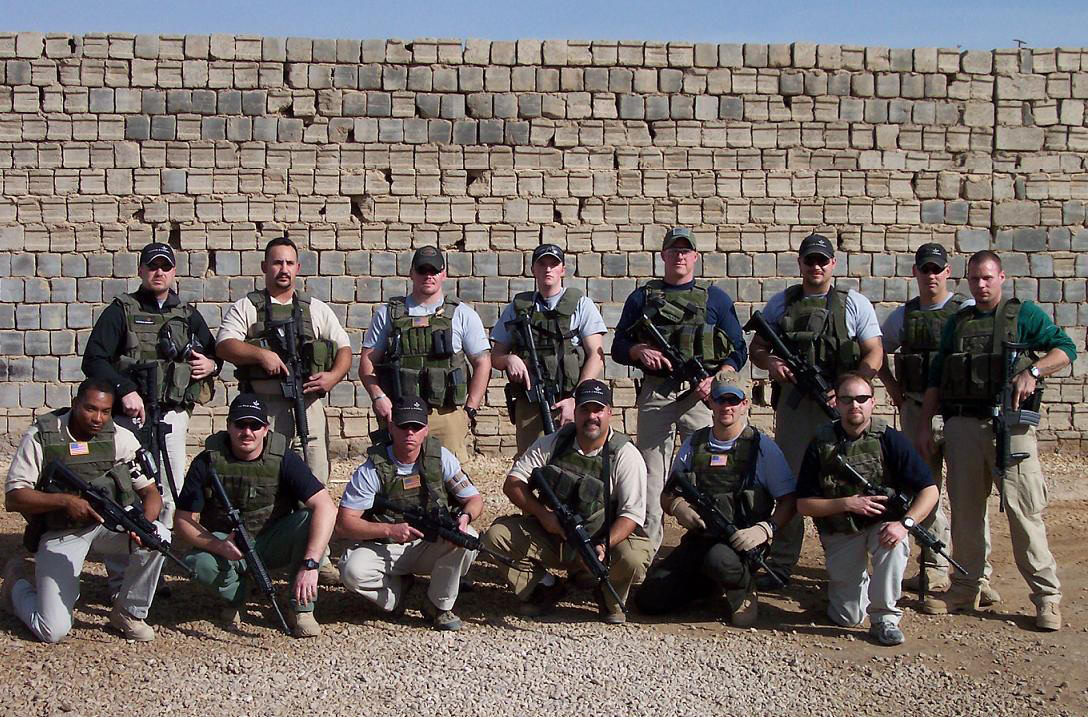
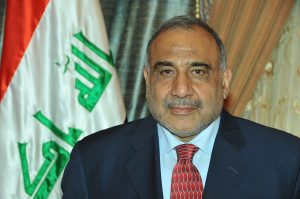
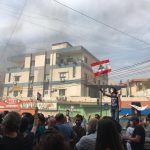
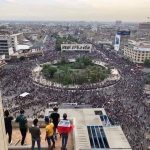
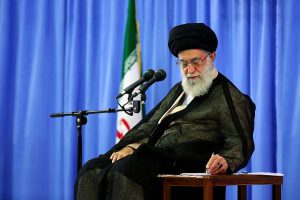
I was in the Army and there at Loyalty during the attacks you describe – I think to lump all PSCs together is not fair to the PSCs, the PSCs at Loyalty were not likely US Citizens (like the ones in your picture above and I assume that from the US flags on their gear) but rather 100% Nigerian or similar extraction and probably not as “willing” or decisive as a US Citizen would be.
You might be right about Liberty, though I think it is arguable that all US Citizens would necessarily be better in the same position.
In any event, the audit noted that “U.S. military commanders at 5 of 30 installations using PSC guards supplemented the guards with military personnel during times of heightened threat.” It is reasonable to suppose that at least some of them were U.S. citizens. Even if it weren’t what does it say about the professionalism about these companies, all headquartered in the U.S., that they would hire TCNs, to guard US bases, who weren’t willing to do their job?